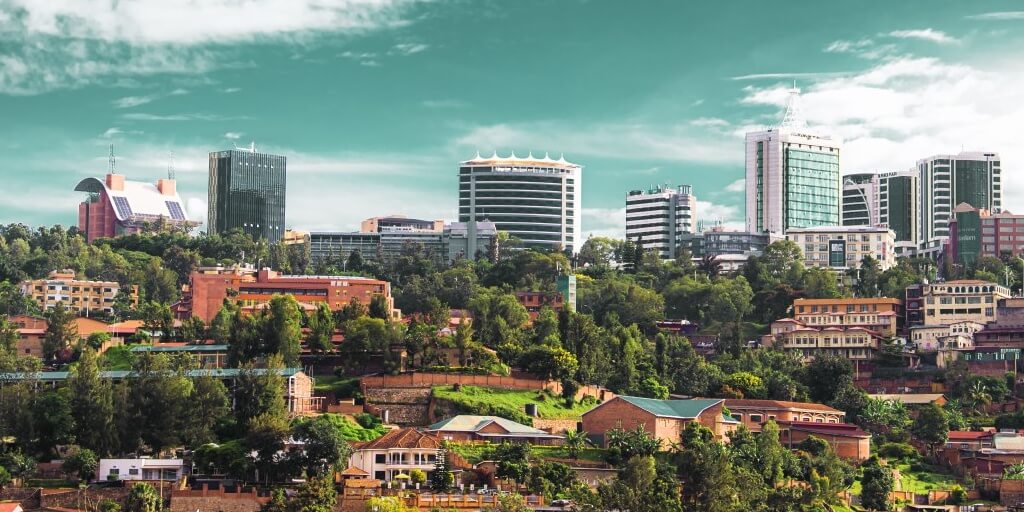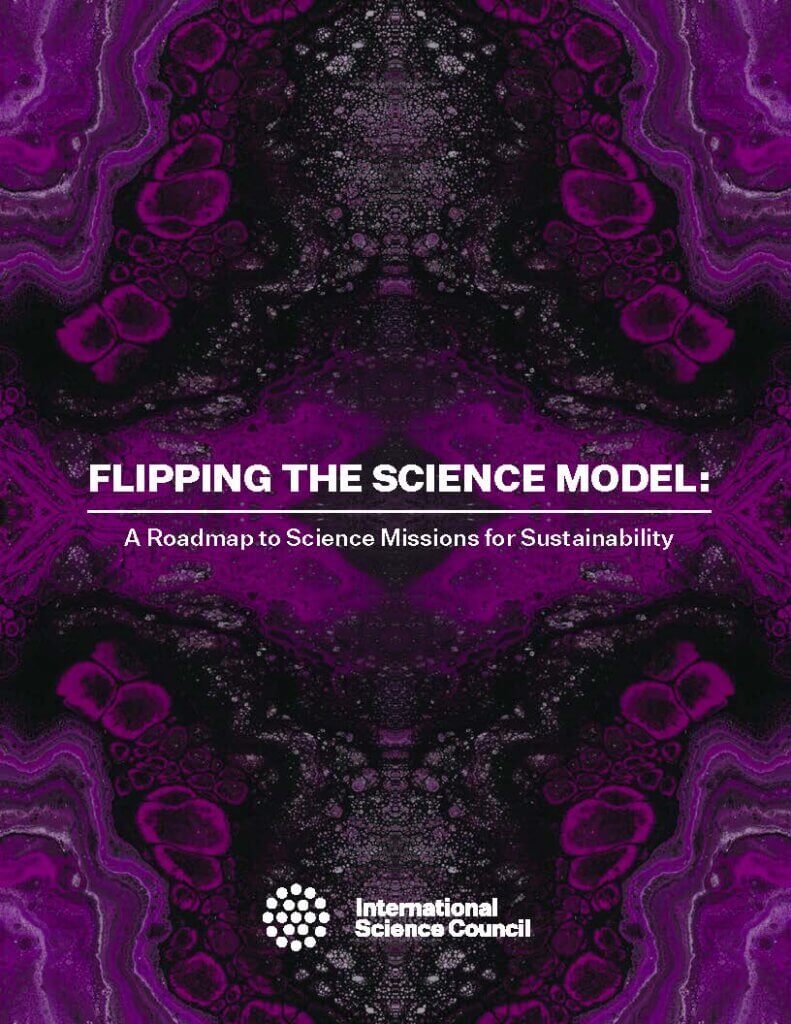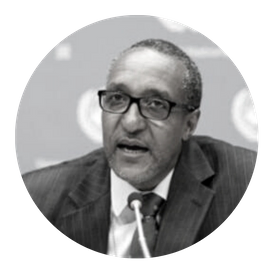
On the occasion of the WCRP Open Science Conference in Kigali and the upcoming COP28 in Dubai, the International Science Council (ISC) has developed a series of special blogs contributing to raising awareness on inclusive climate perspectives, with focus on early-career researchers (ECR) and scientists from the Global South.
In this blog, Ambassador Macharia Kamau, Member of the ISC Global Commission on Science Missions for Sustainability, kicks-off the series with his gripping keynote address at the World Climate Research Programme (WCRP) Open Science Conference.
“Ladies and gentlemen, distinguished guests, participants, I’m honored to speak to you today, and I thank the organizers of this conference for the invitation to be here. My talk this morning will focus on the urgent need for climate action, particularly around addressing the issue of the sustainable development goals.
As some of you are aware, between 2012 and 2013, I worked on the development of the sustainable development goals in New York, as the co-chair of the process that brought those goals to fruition. Even then, in 2013, we realized that of the 17 goals and 169 targets, some posed a greater and more urgent and existential challenge to the planet, people, and our collective prosperity than others.
Among the most important of the SDGs were SDG 1 on poverty, SDG 3 on public health, SDG 16 on peace and the cessation of wars, and most importantly, SDG 13 that focused on the existential threat of climate change.
For today’s conversation, I will focus on climate change, but I do not want it lost on this audience that all the 17 goals of sustainable development must be addressed simultaneously if we are to have the desirable impact on sustainable development, fighting poverty, building greater peace, and bringing about greater and equitable prosperity in our world.
To address the SDGs and climate change, we need to address the issue of advancing climate science and research for a sustainable future. To do so, we also need to recognize that critical elements of leadership, political will, north-south solidarity, intergenerational solidarity, and gender solidarity are all an integral part of finding lasting solutions that we need. In this regard, this conference will have to address the critical intersection of science, technology, leadership, political action, and climate action, because any action in isolation of any of those categories will not result in the desirable outcome that we want to see.
Ladies and gentlemen, there’s now global consensus that climate action has to be global. There is also broad agreement that political solidarity between the global north and the global south that is intended to drive action for sustainable development and climate action must be assured in order to accelerate the process of implementing the sustainable development goals, recognizing that the implementation of all the goals is behind schedule and not on track for achievement by 2030.
The fact that all countries are behind in implementing the sustainable development goals is having very serious consequences. The latest research shows that the world has breached six of the nine planetary boundaries for planetary balance and sustainable life, including for climate and CO2 concentrations. I hope that everyone appreciates how serious this is becoming. These are the planetary boundaries that help us manage climate change, biodiversity loss, and environmental degradation, and therefore life on earth as we have come to know it.
We cannot continue to transgress these boundaries and expect that we shall be able to manage climate change and transform life for all for the better on our planet.
For those of us in Africa, there is a particular sense of urgency in these matters. We in Africa are at the sharp end of these challenges that the planet and global populations are facing. And as Africa is being left behind, it poses serious ethical and moral questions around climate justice, development justice, and related issues of equitable economic and social prosperity, and peace and stability in our world.
Here, on the African continent, we have a deep sense of understanding that there can be no climate action in isolation from all of the other SDG goals. In Africa, we live the convergence of the triple planetary crisis of climate change, biodiversity, and environmental degradation in our everyday lives.
I think it is also sharply clear to us that global solidarity around these issues, both from developing countries and the global north, must be in unison if we are to tame the consequences of climate change. Climate justice and development justice are real concerns for African people. Indeed, this should be of concern to the entire world. The world has to understand the consequences of these concerns, which are climate migrants and refugees, social upheaval and disruption, widespread hunger, and the undermining of peace in many countries. Whether in Africa, Latin America, the Middle East, or even parts of Asia, climate migrants and refugees will become a fundamental challenge to the global north for the foreseeable future if we do not address this issue of climate change urgently and permanently.
At this meeting of open science research, it is important to discuss how we can undertake greater and better open science that embraces and conjoins all scientific and research communities in Africa and the global south with those of the global north. Isolated research and scientific actions in the global north and in academies and universities, and isolated pilot projects in communities will not solve the climate change problem. Doing and implementing research at scale is very important if we are to solve the climate change problem. We have to identify new ways of doing that, new ways of collaboration that will draw together the research efforts and collective scientific action that can drive global transformative change and begin to reverse the triple planetary crises that we are facing.
Ladies and gentlemen, this past April 2023, at the United Nations during the high-level political forum, HLPF, the International Science Council issued an important report entitled “Flipping the Science: A Roadmap to Science Missions for Sustainability.” As a Commissioner of the International Science Council, I would like to recommend this report to this conference. The report points to new ways of collaborating and organizing scientific research around well-funded strategic regional hubs. The hubs would draw together scientists and researchers as well as strategic policy partners to work together to tackle the most wicked, challenging, and transformative issues that are facing climate action and the implementation of sustainable development goals. The report promises better collaborative research at scale between north and south.

So I’d like to conclude by emphasizing the following. First, the nexus of science, technology, and climate action represents the crucial point of concerted action that is needed to mitigate the impacts of climate change, and we must bring together a powerful alliance between science, research, technology, and policy action. The roadmap proposed by the International Science Council is a good starting point.
Second, we must convince our political and social communities that science provides a deep understanding not just of climate change, but of all the other sustainable development challenges that we face. Science and research-based solutions are the way to go. It is only through rigorous research that we can hope to come up with the right applications at scale to solve the problems that we face. Therefore, political and policy action must be guided by science.
Third, technology innovation offers us the opportunities and the tools for action. These include battery technology, renewable energy resources like geothermal, hydro, solar, and wind that can ensure we reduce greenhouse emissions and adapt to the climate that is changing right before our eyes. Equally importantly, we must apply these new technologies and innovations from the grassroots upwards if we are to see change at the scale that is transformative and at the community level, where these solutions are most urgently needed.
Fourth, we have to ensure that developing countries, especially here in Africa, benefit from science and technology rapidly, equitably, and evenly. The international community has a responsibility to promote technology transfer. Climate change will never be tackled if technology and science only benefit the global north. The transfer of clean and sustainable technologies to developing countries is not an act of charity but rather a strategic imperative even for the global north if it is to manage climate change for itself. I must also emphasize that developing countries, particularly in Africa, have to also invest in indigenous science, technology, and innovation for themselves without necessarily waiting for the largesse of the global north. This too is important.
Let me finish, therefore, by emphasizing that there is no climate action in isolation from the implementation of all the sustainable development goals. To meet the SDGs and Climate action challenge effectively, we must ensure that the benefits of science and technology are accessible to all nations, regardless of their economic status. By fostering cooperation, knowledge exchange, and collaborative financial support, we can forge a path toward a sustainable and equitable future for our planet.
Maybe soon we can stop talking of the global north, and the global south because for climate, there is no north and south. There’s one world, one planetary system, and one fragile climate.“

Macharia Kamau
Ambassador, Special Envoy and Senior Advisor, Uhuru Kenyatta Institute, and Senior Advisor of GSTIC (Kenya). Member of the ISC Global Commission on Science Missions for Sustainability.
Picture by Plaisir Muzogeye on Wikimedia.
Disclaimer
The information, opinions and recommendations presented in our guest blogs are those of the individual contributors, and do not necessarily reflect the values and beliefs of the International Science Council